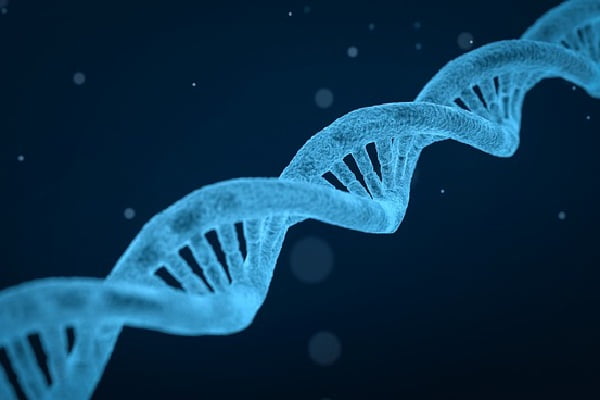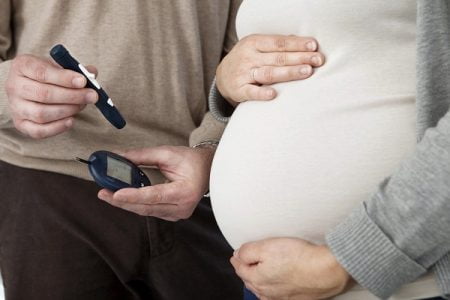Genetics: Is Down Syndrome Hereditary?
- Updated on: Jun 27, 2024
- 3 min Read
- Published on Sep 25, 2019


Genetics of Down Syndrome
Every cell in the human body has a nucleus, which consist of genes in which the genetic material is stored. The genes are grouped along rod like structures called chromosomes and also carry the codes responsible for all our inherited traits. Nucleus of each cell contains 23 pairs of chromosomes i.e 46 chromosomes in total. Chromosome pairs from 1 to 22 are called non-sex chromosomes or autosomes while the 23rd pair of chromosome is called sex chromosome.
There are two copies of all the chromosomes present in the cells of our body and therefore any alteration in the number of copies of chromosomes other than two results in an abnormality. In Down syndrome, chromosome 21 has three copies instead of normal two and the condition is therefore also called Trisomy 21.
Down syndrome has usually three possible genetic causes which are mentioned below – Trisomy 21, Mosaic trisomy 21, and translocation trisomy 21. Please see brief notes on each of them as provided herein.
Trisomy 21
In this condition, all the cells of the body have three copies of chromosome 21 instead of normal two because of the failure of chromosome 21 to separate during formation of an egg or sperm, called as nondisjunction. The extra copy of chromosome results in Down syndrome as it gets copied in each and every cell of a baby’s body and such condition is called trisomy 21.
The exact cause of Trisomy 21 is not known, however some researchers suggest that the age of women may be a risk factor. This type of genetic condition is found in almost 94% of the cases.
Mosaic trisomy 21
In this condition, only some of the cells of our body have an extra copy of chromosome 21 while others have normal two copies. This occurs because of an error in cell division during the early fetal development. This type of trisomy is found in only 1-2% cases.
Translocation trisomy 21
In this condition, the cells contain 46 chromosomes but an extra chromosome material of chromosome 21 is attached to some other chromosome mostly chromosome 14. This is also called as balanced translocation as there is no loss or gain of genetic material. This type of Down syndrome is hereditary if the parents are carriers for balanced translocation. It is found in almost 3-4 % cases.
Is Down syndrome hereditary
Down syndrome, in most of the cases, is not inherited. During the formation of reproductive cells in a parent, a random event occurs resulting in a chromosome abnormality caused by the condition called Trisomy 21. This chromosomal abnormality usually occurs in egg cells but sometimes also occur in sperm cells. The reason behind this chromosomal abnormality is an error in cell division called nondisjunction where the chromosomes fail to separate and as a result the reproductive cells are left with an abnormal number of chromosomes and therefore an egg or sperm cell gains an extra copy of chromosome 21.
If the genetic makeup of a child has any of these atypical reproductive cells, then the child will also have an extra copy of chromosome 21. During the early development of fetus, a random event occurs called as mosaicism where some of the body’s cells gain an extra copy of chromosome 21 while the other cells have normal two copies. Like Trisomy 21, mosaic syndrome is also not inherited.
Translocation form of Down syndrome can be inherited from an unaffected parent. Translocation is actually a re-arrangement of genetic material between chromosome 21 and any other chromosome. The type of translocation found in an unaffected parent is called a balanced translocation because there is no loss or gain of any genetic material and as a result it does not cause any health problem. However, when this translocation is passed to the next generation, it becomes unbalanced and people who inherit this unbalanced translocation may have an extra copy of chromosome 21 which results in Down syndrome.
Does Down syndrome really run in families?
Although all the three types of Down syndrome are related to certain genes (genetic conditions) but only 1% of Down syndrome cases have been found to be hereditary i.e Down syndrome can be passed from parent to a child via genes. Trisomy 21 and mosaicism are not hereditary but one-third cases of translocation type Down syndrome have a hereditary component which is almost 1% of all the cases of Down syndrome.
In almost one third of the cases, one parent has been found to be a carrier of translocated chromosomes.
It has been found that the risk of recurrence of translocation is about 10-15% if the mother is a carrier and 3% if the father is a carrier.
It has been estimated that once a woman has given birth to a child with translocation or trisomy 21 due to non-disjunction, her chances of having another baby with trisomy 21 is about 1 in 100 till the age of 40.












